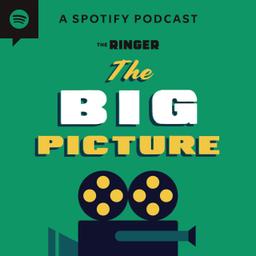
More than a full day removed, we can officially say that this somehow wasn’t an April Fools’ joke: On Tuesday, The Playlist reported that David Fincher would be helming a Quentin Tarantino–penned sequel to Once Upon a Time … in Hollywood … for Netflix. This is the kind of report that would draw skepticism no matter the date. Surely two of the most idiosyncratic filmmakers of their generation, if not ever, couldn’t possibly be working together. But with the trades corroborating the story, shock has given way to questions about the possibilities that this teaming might allow for.
With only Brad Pitt attached to star and Leonardo DiCaprio’s return doubtful, the film sounds like it will be focused on Cliff Booth. Will Margot Robbie’s Sharon Tate return? How does this factor into Tarantino’s now mythic 10-film canon? What can we discern from the Netflix of it all? And, perhaps most importantly, does anyone truly believe this movie will see the light of day? Fincher and Tarantino are no strangers to being tied to buzzy packages, only for them to fizzle out with a quick “that project’s dead” quote before they move on.
But we’re not there yet. The possibilities are still endless. So let’s kick our shoes off, crack open a Wolf’s Tooth, and dive into the most pressing questions swirling around this wild and tantalizing project.
Can Tarantino and Fincher coexist?
Priority no. 1 for every party involved in this project has to be: How do we house these two guys and their very famous egos under one tent? Ego isn’t necessarily a bad thing—in fact, many of the best filmmakers have been brash, vocal, and unafraid to fight for their vision. What’s tougher to picture is how these two specific men will mesh. Inarguably two of the defining voices of their generation, both coming into focus right around the same time, in the halcyon days of the ’90s indie boom, QT and Fincher have each carved out deep, immovable trenches in Hollywood’s mountainous history.
Tarantino, always more of a mixtape artist, represents the video store brats. The kid who grew up around VHS tapes with Sonny Chiba’s, Fred Williamson’s, or Lee Van Cleef’s face plastered on the cover. By the time he was making his first film, his voice was undeniably his own. Sure, the vocabulary was built on obscure pop culture references and slang he picked up from Blaxploitation classics, but Tarantino’s style was emphatically established from the moment of Reservoir Dogs’ opening conversation about Madonna’s “Like a Virgin.” Speaking of Madonna, Fincher famously got his start a different way: in music videos. He was everywhere in the late ’80s and early ’90s, behind the camera for some of Madonna’s, Billy Idol’s, Paula Abdul’s, and Aerosmith’s biggest hits. Honing his craft and pushing the form—take the video for Madonna’s “Vogue,” a black-and-white, expressionist masterpiece—Fincher became known as a tech-obsessed wizard.
A wordy nerd and a brilliant technician—ideally, they could be a match made in heaven, no? This playbook worked in the past when Fincher teamed up with Aaron Sorkin, another totemic screenwriter, on arguably his best movie, The Social Network.
But it’s not so easy to picture these two matching each other’s freak. Tarantino’s been adapted by others before, and while he took well to Tony Scott’s attempt with True Romance, he viciously attacked the more radical approach Oliver Stone went with for Natural Born Killers. His loose, almost jazzy style doesn’t suggest a neat fit with Fincher’s exacting nature. The latter has become known for his many takes, sometimes surpassing the hundreds. It’s not hard to imagine him, in all his precision, slicing some of the excess fat from a rambling Tarantino script—or at least trying to.
What would this movie even look like?
Jumping off the question above, an issue of stylistic clashing comes into play. Fincher, many would say unfairly, is seen as colder, his images isolating. Shot on digital, his dark olive greens and blacks create a feeling of claustrophobia. Tarantino, on the other hand, conjures warm and inviting frames on film. Both are essentially the respective poster children for the fetishism around each of these mediums; Tarantino’s L.A.-based New Beverly Cinema even proudly boasts that it’s “always on film.”
Tarantino’s “hangout” films, notably Jackie Brown and Once Upon a Time … in Hollywood, create these dreamy atmospheres, fantasias of an idealized world where the ’70s never stopped and the cocktails flowed eternally; Cliff Booth tools around the Hollywood Hills as the sun sets, Vanilla Fudge blasting, hair flowing in the wind. There’s a freedom to Tarantino’s cinema, a vast canvas that stretches on forever.
The warmest Fincher’s ever been was, funnily enough, in his own ode to old Hollywood, Mank. But even then, his obsession with shooting on digital resulted in a product that was more controversial than inviting. Despite the attempt to re-create the black and white of yesteryear, scenes of Gary Oldman’s Herman Mankiewicz bustling through Hollywood backlots felt, to some, less like a cinematic memory and more like a plastic facsimile. It should be said that it did work for some, with the added digital grain acting as a visual extension of the film’s thematic acidity.
Either way, it’s not easy to picture these two visual languages meeting in the middle. Then again, maybe that doesn’t matter here because Fincher is the director. You don’t bring him on without knowing who and what you’re getting. If this is, in fact, a Cliff Booth story, perhaps Fincher’s involvement is akin to the pulp novel of the ’60 and ’70s transitioning into the fuzzy video era of the ’80s—Booth’s paperback “hero” moving into B-tier cassette fare.
Who’s gonna be in this?
Initial reporting stressed that Brad Pitt is firmly signed on, but no other casting news was mentioned. It makes sense that Fincher would be interested in the project—some of his most iconic films, Fight Club and Se7en in particular, were collaborations with Pitt. And back when Tarantino was circling a script he’d written called The Movie Critic, Pitt was attached to reprise his role as Booth. Could this be a reworking of that script? Something more in line with a direct sequel?
These are, of course, early days, but it’s hard to imagine that at least some of the faces from the first film wouldn’t pop up in any form or fashion. Might we see what Margot Robbie as Sharon Tate could’ve been after history was rewritten by the ending of Once Upon a Time? It seems hard to believe that a notoriously single-minded director like Fincher would have any interest in that, but then again, Charles Manson did have a major presence in the second season of Mindhunter—in which Damon Herriman, who played the cult leader in Once Upon a Time, reprised the role. Now that Tarantino and Fincher have teamed up, that last tidbit no longer seems like a coincidence. It’s all speculation at this point, but don’t be surprised to see familiar names swarm to the project.
Is Tarantino trapped in a prison of his own making?
Speaking of The Movie Critic, that film was set to be Tarantino’s 10th. That’s important because the director has long insisted that he’ll ride off into the sunset after he makes his 10th movie. “I want to stop at a certain point,” he once told Playboy. “Directors don’t get better as they get older. Usually the worst films in their filmography are those last four at the end. … When directors get out-of-date, it’s not pretty.” But what initially seemed like an admirable code of quality control is beginning to look like an impossible set of standards. It’s almost as if Tarantino doesn’t want to make a 10th movie, knowing that if he does, he’ll have to either break his own rule or stop making movies. The more he spoke about The Movie Critic, the less assured he seemed that it would, in fact, be his swan song. Perhaps reworking that script into something more sequel focused and passing it off to Fincher allows him to see the story get made without it counting against his quota.
What’s funny about this whole corner he’s backed himself into is that it seems nobody is telling him to get out of it. Going out on your own terms is respectable. No one wants to overstay their welcome. However, Tarantino is one of the last of a breed of filmmakers who can get their projects green-lit and sold to audiences solely based on his name. If he’s afraid of a dip in quality, it certainly hasn’t shown in his work. Once Upon a Time was an Oscar winner and one of his most commercially successful films. If Tarantino is afraid to make a 10th movie, someone should tell him that we would gladly watch an 11th.
At the same time, Once Upon a Time did feel like an unintentional “goodbye” from the filmmaker—a closing of the door on a career spent idolizing a now unrecognizable city and industry. Maybe the hemming and hawing is simply because the chattiest director to ever live has nothing left to say.
Will David Fincher ever escape streaming?
Fincher’s legacy is a hot topic among film obsessives because he hasn’t made a theatrical film since 2014’s Gone Girl. In fact, Fincher is basically synonymous with Netflix at this point in his career. Not only did he position it as a streaming juggernaut for prestige TV with House of Cards, but he also went on to create an even more critically acclaimed show for it in Mindhunter. His two post-2014 features, Mank and The Killer, were both made for Netflix as well.
The Killer is one of Fincher’s most compelling films because, as much as it’s a hit man thriller, it’s also a vicious satire of contract work. Many read it as a takedown of the gig economy at large, but you can also view it as Fincher taking the piss out of himself. Michael Fassbender’s hired gun is a bit of a knowing buffoon, always believing he’s above the job he’s there to perform. But the minute he screws it up, the moneymen come calling. It’s easy to see the film as Fincher’s attempt to work through what exactly his legacy is. It’s like he’s asking us, “Is this all I am now? A workaday mercenary for corporate interests?” Pinning down Fincher’s creative wants and needs is murky because he often contradicts himself—sometimes he advocates for streaming; other times, he’s more critical. These days, he’s apparently in the lab tinkering with his past work for 4K rereleases. It can be challenging trying to understand where his head is, but working with a similarly individualist filmmaker like Tarantino might just get those gears going again. There’s also a very real world in which Fincher was simply exorcising some demons in The Killer and came out the other side saying, “Hey, I like being a hired gun.” No shame in that.
What does Netflix offer filmmakers?
Fincher seems to love working for Netflix because it leaves him alone, but what could it possibly offer Tarantino? What is its identity? It built its movie arm on the backs of prestige films like Roma, The Irishman, and Marriage Story, only to scale back on funding those more iconoclastic movies in favor of algorithmic franchise nonstarters. For the past few years especially, Netflix has been where films go to die—look no further than the Russo brothers’ gargantuan nightmare The Electric State, an egregious $320 million failure that came and went to the delight of no one. Netflix now seems intent on chasing green-screen four-quadrant products that are less like films and more like screen savers you can pop on while you fold laundry. Perhaps worse still, it’s wholly uninterested in theatrical windows, to the point that it becomes major news when it decides to grant one to an upcoming release.
Tarantino is one of the last men standing on the theatrical front. Even Scorsese has been forced to go to streaming with his last two pictures. And while Tarantino may not be opposed to working with streaming services—he did cut a Netflix-exclusive miniseries version of The Hateful Eight, after all—it’s difficult to imagine him letting his work go straight to streaming. Then again, the last time he released a movie was before COVID-19, the strikes, and AI completely disrupted the film industry. Tarantino might see the writing on the wall and cash his chips in while he can. If that sentence was depressing for you to read, trust me, it was equally depressing to write.
But seriously, will this even be made?
I mean, come on, this won’t really happen, will it?
In my humble opinion, no. It’s not that I don’t want it to. I’m a 30-something guy who grew up on a healthy diet of Gen X filmmakers, with Tarantino and Fincher at the forefront. A team-up seems so ill advised on some level, yet it’s infinitely exciting. When Kevin Durant joined the Golden State Warriors, did we collectively wring our hands and stress out about the future of basketball? OK, bad example. But the results of that were undoubtedly spectacular, and the same could end up being true for a collaboration between QT and Fincher.
That said, no. I don’t think this will happen.
If you’ve been a fan of one or both of these guys for long enough, you’ll know that the list of projects they’ve attached themselves to is longer than some filmographies. (Seriously, look at this.) This isn’t even the first sequel Fincher’s been linked to. Remember World War Z 2? How about his take on Mission: Impossible III? Or one of his longest-gestating projects, 20,000 Leagues Under the Sea, which has been in development hell so long that it’s old enough to attend college.
Tarantino, meanwhile, is a premier bullshit artist who’s always throwing out enticing ideas. A large part of my early teen years was spent trawling message boards looking for updates on The Vega Brothers, Tarantino’s long-rumored crossover between John Travolta’s Vincent Vega (Pulp Fiction) and Michael Madsen’s Vic Vega (Reservoir Dogs). And, of course, never forget the Django/Zorro movie that he was going to make with Jerrod Carmichael before it fell apart and became a comic book.
I’d love to be wrong. I’d love to see what Tarantino’s voice sounds like through Fincher’s lens. I’d love to see what else Cliff Booth gets up to. Until it actually happens, I don’t think I’ll be holding my breath. Hey, if it does happen, though, it could potentially free up Tarantino to finally tackle Star Trek, another unrealized project. Maybe his “final” film will boldly go where he’s never gone before.




